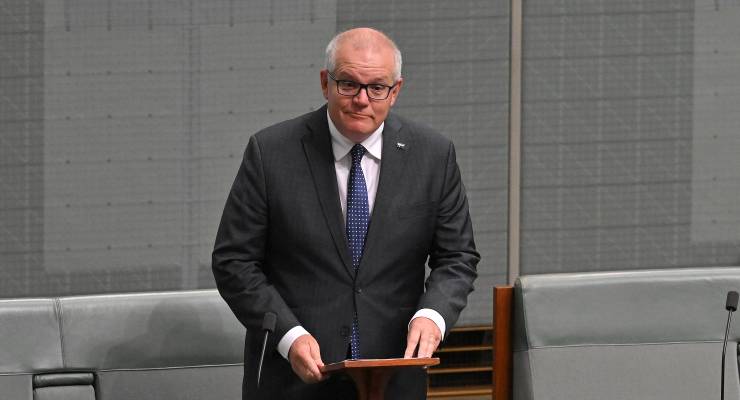
“Keep politics out of sport.”
It’s a phrase we are all familiar with, the catch-cry of conservatives who have an issue with athletes expressing their beliefs rather than simply playing the game. From Nicky Winmar to Adam Goodes, from Cathy Freeman to Donnell Wallam, it is most often uttered in Australia when First Nations athletes are involved.
It has been getting louder each time a sporting body comes out in support of the Voice to Parliament, which culminated last week in more than 20 Australian sporting codes uniting in support of the Yes vote in the upcoming referendum. This included all the major power brokers in Australian sport — the AFL, NRL, Rugby Australia, Football Australia, Netball Australia, Tennis Australia and Cricket Australia, as well as 14 other organisations.
But what does it mean to keep politics out of sport? Perhaps these organisations could have stayed quiet on this issue. They could remove the First Nations and Pride rounds from their competitions. Certainly, this would appease those whose complaints have echoed loudest throughout the past week — including former prime minister Scott Morrison. But would it mean politics has been removed from sport, or just a certain subset of politics that critics dislike?
Logically, the Anzac Day games would also have to go, along with invitations and appearances by politicians at high-profile matches. Morrison himself famously brought sport into politics on a number of occasions — most notably when he spoke publicly about his intentions to attend an NRL game early in the COVID-19 pandemic, and when he tweeted about the Australian men’s cricket team providing a morale boost for firefighters during the devastating bushfires of 2019.
The fact of the matter is that sport is inherently political, because simply existing in society is political. There is no neutral bubble that athletes and sporting organisations can stay inside of, unaffected by the political decisions shaping the world around them. A decision to support the Voice is political, but so is a decision to say nothing at a time when public figures and organisations all over the country are speaking out on which way they are voting. Many of the sports involved have great numbers of First Nations athletes within their ranks and they have made a decision to come together to support their people.
At the heart of the issue is a discomfort with sport moving away from its conservative roots. Sport has always held great political power; however, this has been traditionally used to uphold the status quo. It was a particularly powerful tool of the British Empire, which used it to disseminate cultural ideas and traditions to the colonies as a way of asserting power. One of Australia’s most beloved sporting figures, Don Bradman, wrote to then-prime minister Malcolm Fraser following the 1975 dismissal of the Whitlam government, urging Fraser to push back against socialism and unions.
In recent years the way sport engages with politics has begun to change, with women’s sport granted a more prominent position in the landscape and societal issues such as climate change, LGBTQIA+ rights and anti-racism being addressed by athletes and sporting bodies. So too has there been an increase in sporting bodies uniting on these issues. From signing on to the anti-homophobia in sport framework in 2014, to the creation of trans and gender-diverse inclusion policies in 2020, Australian sporting bodies are realising the power of collective action and how sport can be a force for societal change, rather than for upholding traditional values.
It is also important to note that the majority of sports getting involved in these political issues are commercial entities. They make these decisions with the knowledge that for every loud critical voice, there are many others who are buoyed by their support. First Nations and Pride round merchandise sells extremely well, sponsors who may be put off by advocacy are generally replaced by those whose values align with the position of the sport. These decisions are made with principles in mind, but always with an awareness of financial concerns as well.
To separate sport from politics is to separate sport from society, which is simply not feasible. Sporting organisations are made up of people — their jobs do not define their humanity.
Tennis star Naomi Osaka put it simply and eloquently on Twitter in response to athlete support of the Black Lives Matter movement: “I hate when random people say athletes shouldn’t get involved with politics and just entertain,” she wrote. “Firstly, this is a human rights issue. Secondly, what gives you more right to speak than me? By that logic if you work at IKEA you are only allowed to talk about the ‘GRÖNLID’?”
Sport and politics are intrinsically intertwined. The only question is about how that political power is used.
Should sportspeople simply shut up and play, or is it an insult to suggest that? Let us know your thoughts by writing to letters@crikey.com.au. Please include your full name to be considered for publication. We reserve the right to edit for length and clarity.








He’s trying to eat his cake and have it to. He can’t pose with sporting stars one moment to promote himself & his party, then tell others they need to remain separated from politics. He’s simply having a sook that they’re not aligning with the side he’s pushing. Nothing more. Scotty is the one who needs to keep out of politics.
Brilliant concluding point Bastard.
Hypocritical to the last, Morrison was uncharacteristically silent on Qatar hosting the FIFA World Cup. Yes, it’s great that non-traditional superpowers get to host TV content events with global audiences. But it’s also obvious that the sport was being used to advance national power (“politics”). Sport inserts brand management intrusions well below the defences of otherwise sceptical humans, a bit like a Trojan horse without the carpentry.
Morrison doesn’t care about the principle of politics influencing sport. He cares only about “the other side” doing it.
Yet he found it quite acceptable to campaign on trans women in sport through his proxy Katherine Deaves during the 2022 election campaign. Massive hypocrite!
Who cares what Morrison thinks? He’s an irrelevant back bencher.
Maybe Scott Morrison should stay out of the Referendum.
Oh bugger, said the same thing then read to the bottom ….
Morrison emphatically denying something makes it worth investigating.
They reckon ‘confession is good for the soul’ … oh wait a minute….